What to Expect When You’re Expecting a Roof Inspection
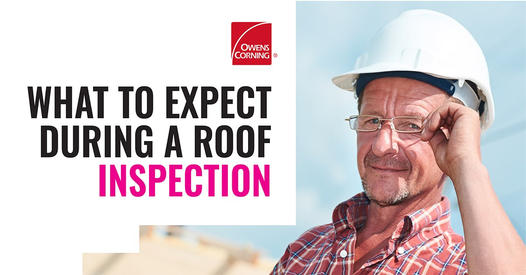
It’s important to call a roof inspector from time to time to make sure your roof is in-check. Here’s what you should expect from one.
Getting a roof inspection from a professional roofing contractor is like the roof’s version of a check-up. It’s also crucial to get one done if you’re planning on any upgrades or improvements that may involve the roof, such as adding skylights or solar panels. The inspection is vital for knowing the current condition of your roof, and if repairs or replacement is needed, establishing the timeline of your project as well as what the project will cost you.
What is a roof inspection?
A roof inspection is a thorough examination and assessment of a roof’s condition done by a professional roof inspector.
After a roof inspection, the inspector puts together a report that documents the condition of your roof, making notes of any minor or significant issues that should be addressed.
How often should you get a roofing inspection?
Schedule a roof inspection anytime you're worried about your roof's safety or ability to withstand moisture, or if you're planning to remodel, sell, or buy a home.
Depending on where you live, you may want to arrange for a regular inspection after seasonal or unusual weather events, such as heavy downpours, wind gusts, hail, or snow.
Scheduling an annual roof inspection, much like a yearly physical, is the best way to catch problems before they escalate. Here are a few more reasons why you may need a roof inspection:
To assess your roof's integrity
If you notice any of the following, it's time to call in a roofing inspector.
- Recent severe weather, such as hail or high winds
- Discolorations in your ceilings, or walls or noticeable dampness in your attic or insulation
- Bald, cracked or curled shingles, which may indicate your roof is aging
To prepare for a home renovation
If you're planning a major remodel in the near future that involves the roof, a roofing inspection can answer questions such as:
- Should you replace the entire roof during construction or simply tie the addition into your existing roof?
- Can your roof support solar panels, and is it expected to last, or outlast, the life of the panels?
Before buying or selling your home
Residential roof inspections benefit both the buyer and seller in a real estate transaction, providing peace of mind during and after the sale.
Who performs roof inspections?
Roof inspections can be done by:
- Roofing contractors
- Roof inspectors
- Home inspectors
Choosing the right professional inspector for the job depends on your reason for scheduling the inspection in the first place. Not all home inspectors are qualified to do a thorough roof inspection, so it's best to look for one with roof experience.
Can I do my own roof inspection?
Unless you’re a professional roofer, you can easily miss many of the early signs of roof and shingle damage. Roofing inspectors know where to search for evidence of water infiltration, and they know how to lift and check shingles without causing damage.
Professional roofers also have experience working and walking on steep surfaces.
> Pro tip: In the case of a roof inspection needed for an insurance claim, warranty claim, or real estate transaction, only an inspection done by a professional is acceptable.
Roof inspection before a roof repair or roof replacement
Many roofing contractors do a basic roof inspection as part of their services when providing an estimate for potential repairs or roof replacement work.
Make sure you choose a reliable, independent roofing contractor like those in the Owens Corning Roofing Contractor Network. Avoid pop-up companies that may show up after a storm with no physical address in the area, and always leave on-the-roof work to the professionals.
> Pro tip: Call your home insurance provider first if you think you have damage to your roof due to a storm or falling debris. They’ll send a roof inspector out to assess the situation, as well as advise you on the next steps, such as submitting a claim and scheduling repair work.
Roof inspection before a real estate transaction
A home inspection is often required when buying or selling a home. A home inspector inspects a home’s roof and attic space as part of their assessment, but they're often more of a generalist than someone whose focus is on roofing.
As a buyer, getting an accurate assessment of the roof before you close is critical. A roofing inspection lets you address any discovered issues with the seller and helps you avoid any surprises after you’ve moved into your new place.
So, in addition to the home inspection, you should hire a roofing contractor or a company specializing in roof inspections to perform a separate roof inspection.
How much does a roof inspection cost?
The cost of a roof inspection depends on several factors, including:
- Why you're getting one – for example, potential roof replacement vs buying a home
- Who you hire – certified home or roof inspector versus roofing contractor
- Roof size and pitch – the bigger or steeper the roof, the higher the costs
- Roof accessibility – how easy or difficult it is for an inspector to walk the roof and get into the attic or crawl spaces
- Geographical region – the average cost of an inspection in California could potentially be higher than the average cost in Michigan
According to HomeAdvisor, the cost of a roof inspection based on their typical range data is between $120 - $321. Use their true cost guide to see the average costs of roof inspections in your area.
You may find roofing companies in your area that offer free roof inspections as part of their process to give you an estimate for a potential roof repair or replacement project.
A certified home or roof inspector may charge more than a roofing contractor who does inspections.
Get a few quotes to compare costs before making a final decision on whom to hire.
A professional roofing contractor or inspector can help guide you through the inspection process and provide a project timeline and estimate of any associated costs with the inspection.
> Pro tip: The International Association of Certified Home Inspectors® (NACHI) is a good resource to find certified home inspectors in your area, but you’ll need to ask if they specialize in roof inspections.
How are roofing inspections performed?
Most professional roof inspectors use a combination of on-site inspection and modern technology, including infrared and aerial cameras and satellite images.
Visual inspection
-
Roofing inspectors typically are physically on the roof, examining the various roofing components, from shingles to flashing and vents. Then, they'll walk around searching for signs of damage or irregularities. They'll often take pictures to accompany their report.
Infrared scanners
- Infrared scanning looks beyond the surface of the roof. It searches for temperature variations within the materials themselves, which can be caused by trapped moisture.
- While infrared scanners are most commonly used on commercial roofs, especially those with low-slope designs, some companies also use them on residential homes. Scanners can be handheld or attached to drones.
Aerial drones
-
Remote-operated equipment with attached cameras helps inspectors avoid the dangers associated with walking on steep slopes or unreliable surfaces. Drones make it easy to look underneath overhangs and above steep dormers. It's also a practical way of handling social distancing requirements.
Satellite imagery
-
Satellite pictures are helpful to roofing professionals when they need to determine the square footage of your roof along with the slope before writing up an estimate. However, they also can point an inspector to roof problem areas, such as missing shingles or damaged flashing.
What do roofing inspectors look for?
During the inspection, a roofing professional will look at all the components of your roofing system. This includes the roof deck and frame, surface materials like asphalt shingles and flashing, and related interior spaces, such as attics and crawl spaces.
Structural framework
Your roof deck supports the whole roofing system, from underlayment to shingles. As such, it's one of the first areas an inspector examines. Is the underneath construction solid with no evidence of sagging or soft spots? Water damage, excessive and continuous snow loads and poor joint assembly are all potential causes of a sagging roofline.
Roofing components
The parts of a roofing system work together to ensure your home's roof remains watertight and impervious to the elements. A flaw in one piece can quickly lead to deterioration in others. Therefore, a roofing inspector makes sure to check for the following problems within each component.
- Shingles: Curled edges, cracks, loss of granules, excess moss, missing or loose shingles
- Flashing: Dents, torn or missing pieces, corrosion, loss of sealant
- Gutters: Unattached, clogged
- Chimneys: Cracked caulking, mortar or brick, missing chimney cricket
- Vents: Improper seals or placement
- Skylights: Missing caulking or sealant, signs of leakage
- Underlayment: lack of ice and water barrier in areas where ice dams may occur
- Attic Insulation: Wet, displaced or lack of sufficient depth
Workmanship
In addition to checking each roofing component, a roof inspector also looks at the quality of workmanship, as this can contribute to how well your roof will perform and age. Improper nailing techniques, below-standard materials and incorrect shingle placement can all affect the length of time your roof remains watertight.
Interior spaces
Properly insulated and ventilated attic spaces can help improve your home's energy efficiency and save you money. However, attics can also provide a place for mold and mildew to accumulate if leaks occur. Therefore, a roofing inspector should look at the areas directly underneath the roof to:
- Verify the home’s ventilation system is balanced and working properly. An effective ventilation system helps prevent condensation build-up in your attic, which can lead to mold, mildew and ice dams.
- Check insulation for water damage or lack of sufficient amount of insulation.
- Search for dark spots/water damage on the underside of the roof deck and the rafters — dark stains may indicate mold growth — and determine if they're active or from a previously addressed problem.
- Understand that dark spots in the insulation are likely not mold but dust from air leakage into the attic. Any air leaks from the interior of the home into the attic space should be addressed as they defeat the thermal benefit of the insulation and can add unwanted moisture (water vapor) into the attic.
- Examine the roof's structural elements, including joint clips, sheathing panels and joists and look for any pest evidence.
What happens after a roof inspection?
Once the roof assessment is complete, you should receive a detailed analysis of the condition of your roof. The report will list any problem areas or concerns and may also include supporting pictures.
If a professional roofing contractor completes your inspection, they'll offer information on the possibility of repair or the need for a reroof, along with estimates.
What are the benefits of a residential roofing inspection?
A roofing inspection gives first-hand knowledge of a roof's condition and helps you budget for future expenses.
- Should the inspection indicate a need for a roof repair or replacement, you can go into the process confident of the facts.
- Fully informed buyers and sellers can move forward confidently during a real estate transaction.
- Getting the green light on your roof provides great peace of mind, knowing your home and belongings are protected from the elements.
Original article source: Owens Corning
Have a question? AskARoofer.
Find your local roofing contractor in the RoofersCoffeeShop® Contractor Directory.


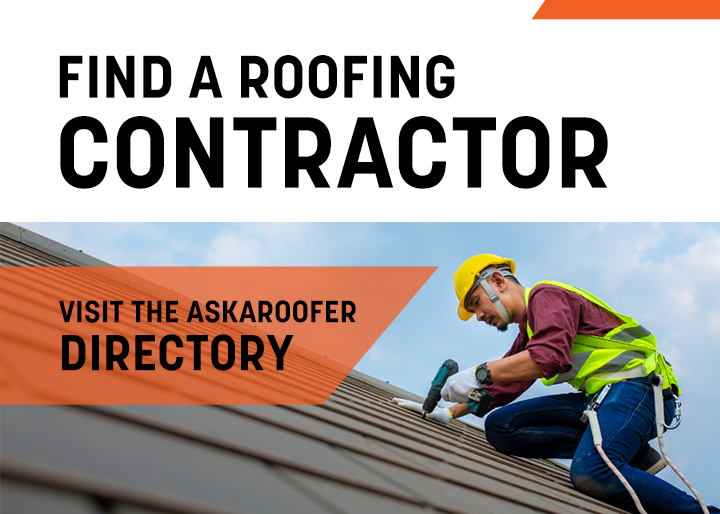

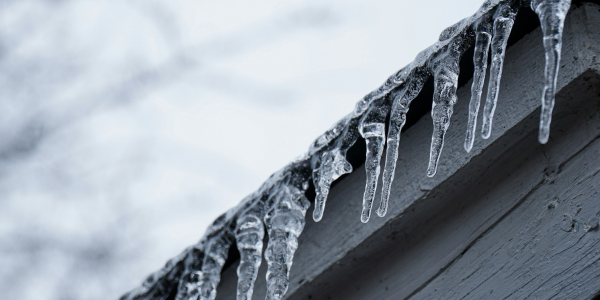
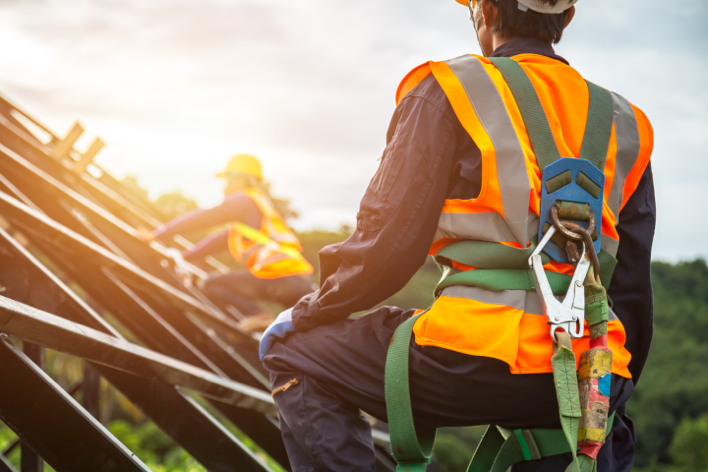
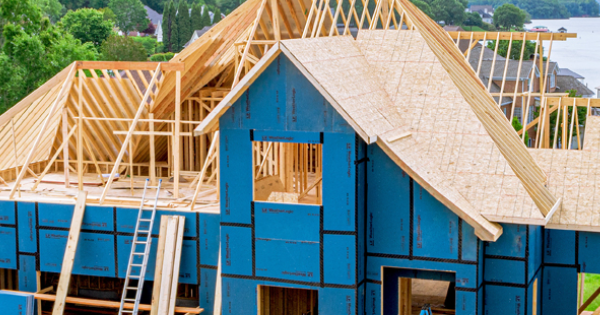


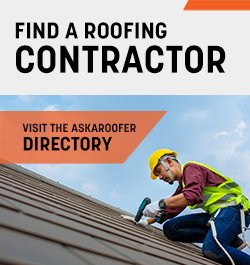


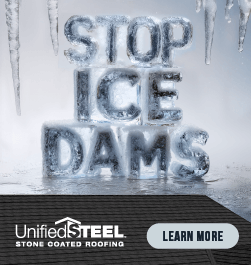
Comments
Leave a Reply
Have an account? Login to leave a comment!
Sign In